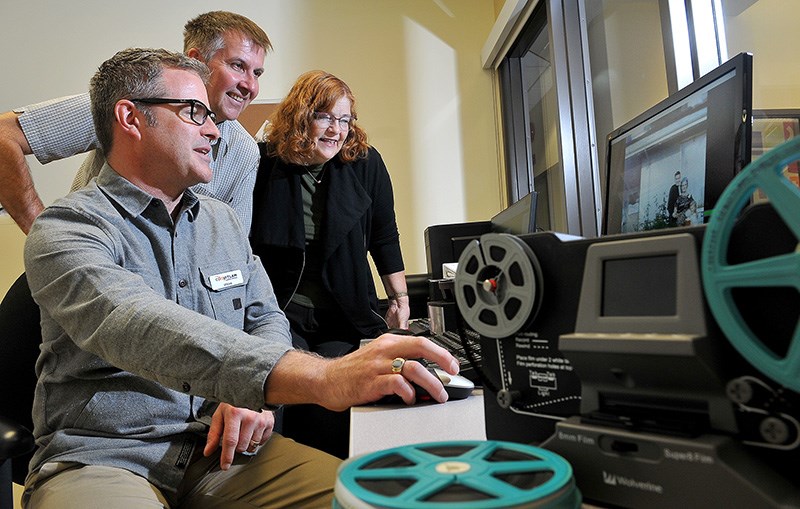A new digitization station at the Poirier Street branch of Coquitlam Public Library is more than just a collection of electronic devices hooked to three computers.
It’s a link to the past for generations that may never experience 4X6 glossy photos, cassette and video tapes, slides and 8 mm movies.
The station, located in the library’s local history room, will allow users to digitally preserve their old photos, home movies, camcorder footage, audio recordings — even microfilm — to current technology, like CD, DVD or a memory stick, said Silvana Harwood, the library’s deputy director.
That ensures those memories can live on even as the photos fade and analogue technology becomes obsolete. It also makes them easier to share, Harwood said, citing an old family photo of a relative she found squirrelled away in a box that she was able to scan and email to relatives in Italy who had never before seen it.
“We rebuild connections when sharing,” Harwood said.
The equipment for the digitization station was acquired with the help of the Coquitlam Foundation through a Canada 150 grant. It includes a VHS video machine, a cassette deck, a reel-to-reel 8 mm film player as well as a flatbed scanner with adapters for film negatives and transparencies, and a new microfilm reader. They’re all hooked into computer stations loaded with software to convert their analogue media into digital ones and zeroes, as well as allow for adjustments and corrections to be made, like bringing up to speed audio that has been slowed because a cassette tape has stretched or colour correcting photos that have discoloured over time.
It can be time-consuming, laborious work, said Steve Nicklen, the library’s systems technician who set up the station, but the effort is worth it.
“All of this stuff is really fragile,” said Nicklen of legacy media. “This is the new way.”
But it may not be the final way, Harwood said.
There’s a value in holding an old photo or unspooling a reel of 8 mm film that can evoke strong emotions and memories. But boxes or containers holding those media can be lost, misplaced or even destroyed. Digitizing them ensures a kind of safety net against that as well as allowing them to be shared more widely so that others can also preserve them.
Preserving and sharing memories is an important part of the human experience, Harwood said.
“We need to know where we came from,” she said. “It’s the evolution of the past. And it’s just plain fun.”
• The local history room is open during library hours and the equipment is free to use. Users of the digitization station must bring their own digital storage, like blank CDs, DVDs or memory sticks. To book an appointment, call 604-937-4141 or email [email protected].



